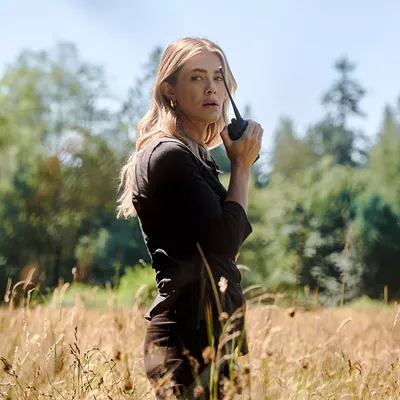There are many books that hold a special place in my heart, but every so often I come across one so good I don't want to put it down until I read the whole story. One of those books was John Green's The Fault in Our Stars. The title and the author's name might ring a bell — the book was hugely popular back in 2014, when a movie based on the story was also released.
I've grown up a lot since 2014 — I attended and graduated from high school, and I'm now more than halfway through college, but I still think of Green's books as some of the best I've read. I love how the characters draw me in, how he writes emotions in a raw and unfiltered way, and how his stories are always a bittersweet blend of loss and hope, loneliness and connection, a balance that describes how I too feel about life and love — two major themes of his books.
I was beyond excited when Green recently published The Anthropocene Reviewed. I was also intrigued, since it's his first nonfiction book. Green wrote it over the course of quarantine, so he lets the reader in on his thoughts, his hopes and his fears at a vulnerable and uncertain time.
The book is a series of reviews of a seemingly random assortment of objects, phenomena and places, all are products of the anthropocene — "the current geological age in which humans have profoundly reshaped the planet and its biodiversity," according to the book.
Green also ties in the history of each thing he reviews, as well as his own personal connection. He also ends his reviews with a rating on the five-star scale.
Don't be fooled into thinking this is some run-of-the-mill review book. Green's reviews seamlessly incorporate facts, feelings, and lessons learned or moments he holds onto. Everyone is guaranteed to learn something new from it.
A few of my favorite reviews include the academic decathlon, sunsets, Super Mario Kart, Hiroyuki Doi's circle drawings, the world's largest ball of paint, and the song "New Partner" by Palace Music. I love it when writing sparks a glimmer of hope or empathy through the author's own vulnerability, and reading this book and getting to see that from one of my favorite authors was a treat. Since the book is from his perspective and not a character's, it was even more impactful. As someone who also feels like their future is just out of reach, a feeling both thrilling and terrifying, I appreciated the way Green's book reminds me to look forward with cautious optimism.
Throughout the book, Green examines the way humans just keep pushing through difficult circumstances, finding hope in the midst of the pandemic. The first part has a more nervous tone as Green writes about feeling helpless, and it isn't until almost the halfway point that Green gives out his first five-star review, for sunsets. The tone shifts and he starts to find the beauty and wonder in small but meaningful things he reviews, which help him reframe his thoughts.
"You cannot see the beauty which is enough unless you make yourself vulnerable to it ... this whole thing you've been doing where nothing gets five stars because nothing is perfect? That's bullshit. So much is perfect. Starting with this."
I give The Anthropocene Reviewed four and a half stars. It's not perfect, but the emotions and vulnerability and hope I found in it are pretty close. ♦




















